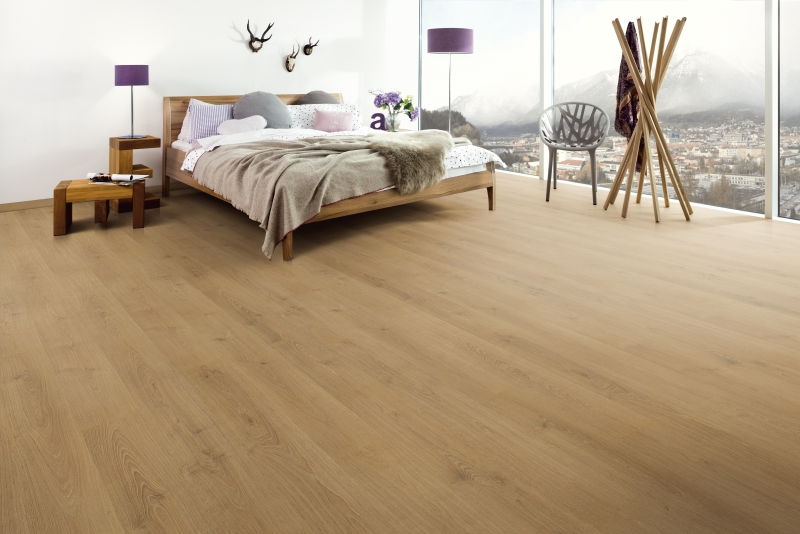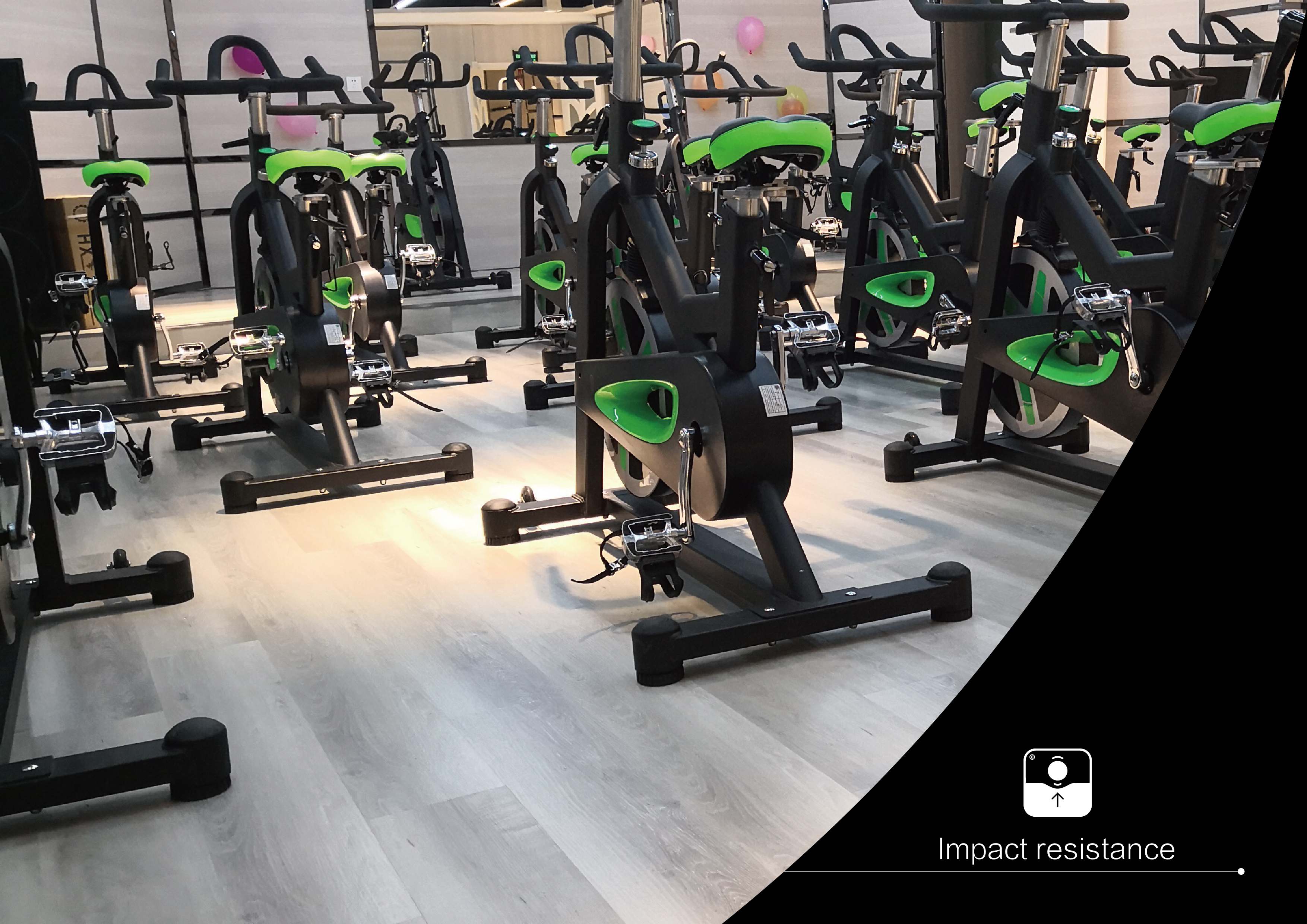As the resilient category continues to expand into various subsegments, flooring dealers have had to stay abreast of where each product—once installed—will truly thrive. LVT, WPC and SPC flooring— arguably the three most popular resilient products today—all have different nuances that make one better than the other for different projects.
When helping a consumer find her ideal floor, expertssay retailsales associates need to considerseveral factors, including the consumer’s lifestyle and the room in which the flooring is being installed. For instance, areas with direct sunlight could benefit from an SPC vinyl flooring product. That’s according to George McMurtry, owner, America’s Carpet Outlet, State College, Pa., who explained flooring near “a porch or deck entrance with a southern exposure, a wall with full length windows or in a home without UV protection in the windows is typically in direct sunlight. A WPC flooring product could be more susceptible to movement caused by the direct sunlight than a product with an SPC rigid core.”
SPC vinyl can also be the ideal product for a consumer looking for a high-performing floor. “SPC flooring is a home run for those wanting tough, dent-resistant hard surface, especially if they don’t want to remove their existing ceramic or porcelain tile,” said Marjorie Benson, president, Friendly Floors, Port Charlotte, Fla. “WPC vinyl flooring is great for some of the older population where a bit softer, resilient floor is helpful for hips, ankles and knees.”
For Cathy Buchanan, co-owner, Independent Carpet One, Westland, Mich., SPC vinyl plank is the go-to for three-season rooms. “A rigid core product would be the first direction shown to the consumer due to fade and ever-changing temperatures and the water aspect of this product,” she noted.
Buchanan said she also believes situations calling for rolling chairs and extreme traffic could benefit from SPC’s performance attributes. “SPC rigid core vinyl flooring is a sure bet due to its strength, flexibility in application, temperature allowance and price for budget.”
While WPC and SPC flooring have become the go-to products for residential projects, they are also making their way into the commercial space. “I recommend LVT products in any situation that a customer may be looking at hard surfaces, and more than ever in baths and wet areas,” said Chris Kemp, owner, Kemp’s Dalton West Flooring, with three locations in Georgia. “I like to use SPC floor in commercial areas.”
Craig Phillips, president, Barrington Carpet, Akron, Ohio, has seen his custom builder, commercial and retail business all shift over to SPC click flooring products.“SPC offers many advantages over traditional LVT—no acclimation, better sound absorption, in addition to being more forgiving of imperfect subfloors. We have actually seen some of our property accounts switch to SPC where their budget permits. The SPC products offer very realistic visuals and are built for today’s active households.”
Despite WPC and SPCs’ strong hold on most of the market, traditional LVT is still being specified in various commercial projects. As Benson explained, “Glue-down LVT is better for commercial applications where chairs, carts, etc., may be rolling over them. In Florida, we have more concrete slabs in poor condition than not, so we prefer floating floors residentially.”
Phillips said he sees LVT being installed mainly in property management projects. “It’s aggressively priced but allows the property managers any opportunity to upgrade their common area flooring within the apartment to a better-looking, durable, easily repairable flooring.”
While it is clear most dealers have their top product categories for different installation projects, many stress the fact that they don’t push the consumer to one specific product.
“Typically, for most homeowners we would not make any significant distinction among the different construction types of LVT,” McMurtry said. “In more residential environments, our experience is the final selection should be based on color, traffic type and volume and general appearance.”
McMurtry is not alone. Tim Schoolfield, owner, Countryside Carpets Flooring America, O’Fallon, Mo., said his staff keeps it simple. “This gets way too complicated, and as sales professionals we can get too far out in the weeds. I tell them to pick the look and feel they like; take the samples home and see how they look. If they like it and it fits their budget—buy it. In most residential applications, it doesn’t matter what acronym it is. Most household moisture cleaned up properly isn’t going to hurt it.”
To help dealers meet the needs of all consumers, manufacturers have brought various innovative LVT, WPC and SPC plank flooring products to market.